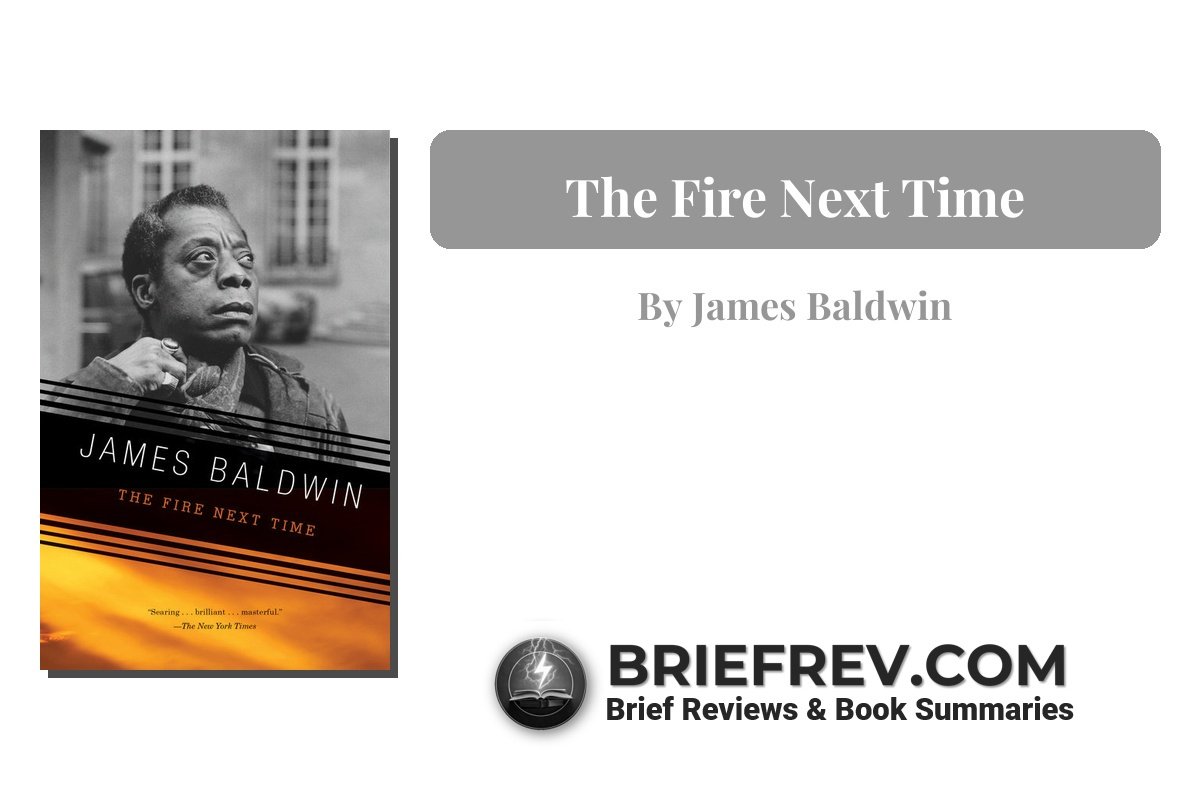The Fire Next Time by James Baldwin: A Timeless Call for Justice and Understanding
In The Fire Next Time, James Baldwin delivers a searing meditation on race, identity, and the moral responsibilities of a nation. Written during the height of the Civil Rights Movement, Baldwin’s words remain hauntingly relevant today. At its core, the book is a passionate plea for Americans—Black and white alike—to confront the legacy of racism not only in laws and institutions but in the hearts and minds of individuals. Baldwin’s message is clear: without honest reckoning and mutual love, the country risks destroying itself in the very flames it refuses to acknowledge.
What the Book Covers
The Fire Next Time is composed of two essays: “My Dungeon Shook,” a letter to Baldwin’s 14-year-old nephew, and “Down at the Cross,” a longer reflection on Baldwin’s personal experiences with religion, race, and American society. Together, these essays form a powerful narrative that blends personal memoir, social critique, and philosophical inquiry. Baldwin writes with both tenderness and urgency, addressing the pain of Black existence in America while also challenging white Americans to recognize their complicity in systemic injustice. The book is intended for anyone seeking to understand the emotional and psychological toll of racism, as well as those willing to engage in the difficult work of change.
Key Insights
One of Baldwin’s most compelling insights is the idea that love is a radical and necessary force in the fight against racism. He argues that love—defined not as sentimentality but as a deep, honest engagement with another’s humanity—is the only way to bridge the chasm between Black and white Americans. For Baldwin, love requires truth-telling, even when that truth is painful. It demands that people see each other clearly, without the distortions of fear or prejudice.
Another central theme is the psychological damage inflicted by racism—not just on the oppressed, but also on the oppressors. Baldwin contends that white Americans have constructed a false sense of identity based on the myth of Black inferiority. This myth, he warns, is not only morally bankrupt but also spiritually corrosive. By denying the full humanity of Black people, white Americans deny their own capacity for empathy and growth. Baldwin challenges his readers to confront these illusions and to seek liberation through self-examination.
Baldwin also explores the role of religion in shaping Black identity and resistance. Having grown up in the church, he reflects on how Christianity offered both solace and constraint. While the church provided a sense of community and hope, it also demanded submission to a moral order that often mirrored the very hierarchies of the society it claimed to transcend. Baldwin ultimately rejects the dogma of organized religion, but he retains a deep spiritual sensibility—one that values personal integrity, compassion, and the courage to face uncomfortable truths.
A further insight lies in Baldwin’s critique of fear as a tool of oppression. He observes that fear—of change, of difference, of loss—drives much of the racial animus in America. This fear manifests in laws, social norms, and even in the private thoughts of individuals. Baldwin insists that overcoming this fear is essential to building a more just and humane society. He calls on both Black and white Americans to reject fear and embrace the vulnerability that comes with genuine human connection.
Memorable Quotes
“Love takes off the masks that we fear we cannot live without and know we cannot live within.”
“If we do not dare everything, the fulfillment of that prophecy, recreated from the Bible in a song by a slave, is upon us: God gave Noah the rainbow sign, no more water, the fire next time!”
Why This Book Matters
The Fire Next Time remains a vital work because it speaks to the enduring realities of racial injustice and the moral choices that confront every generation. Baldwin’s eloquence and insight offer not only a diagnosis of America’s racial wounds but also a vision for healing rooted in honesty, courage, and love. In an era still marked by division and inequality, his words challenge readers to look inward and to act outwardly with integrity. This book is especially meaningful for those seeking to understand the emotional and spiritual dimensions of racism, as well as for anyone committed to building a more equitable society. Baldwin does not offer easy answers, but he does offer a path forward—one that begins with truth.



